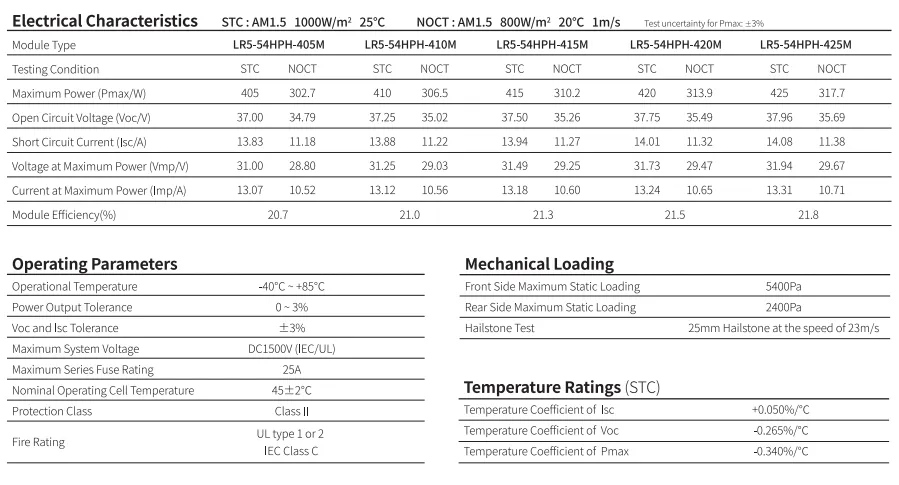Understanding Solar Inverters for Efficient Energy Conversion and Sustainable Living
Understanding Solar Inverters The Heart of Your Solar Energy System
As the world shifts towards renewable energy sources, solar power has emerged as a leading alternative. Solar panels harness the sun's energy, converting it into electrical energy for homes and businesses. However, one critical component that plays a pivotal role in this conversion is the solar inverter. In this article, we will explore the function of solar inverters, their types, and their importance in solar energy systems.
What is a Solar Inverter?
A solar inverter is an essential device that converts direct current (DC) electricity, which is generated by solar panels, into alternating current (AC) electricity. Most household appliances and the electrical grid operate on AC power; therefore, the inverter is crucial for making solar energy usable. Without it, the electricity produced by your solar panels would be useless for everyday applications.
Types of Solar Inverters
Solar inverters come in several types, each suited for different setups and needs. The main categories include
1. String Inverters This is the most common type of solar inverter used in residential installations. A string inverter connects multiple solar panels into a single string. It is cost-effective but does have some limitations, especially if the panels receive uneven sunlight, as the output of the entire string will be affected by the output of the weakest panel.
2. Microinverters As the name suggests, these inverters are installed on each individual solar panel. Microinverters allow for greater flexibility and optimization, as each panel operates independently. This adaptability can lead to higher overall system performance, especially in areas with shading or varying panel orientations.
3. Power Optimizers These devices are a hybrid between string inverters and microinverters. Power optimizers are installed at the panel level but still send the DC electricity to a central string inverter for conversion. They help to maximize energy production under various conditions while maintaining the cost benefits of a string inverter system.
solar inverter video

4. Hybrid Inverters Hybrid inverters can handle both solar energy conversion and energy storage, making them suitable for systems that incorporate batteries. This allows homeowners to store excess energy produced during the day for use during nighttime or cloudy weather, increasing energy independence and efficiency.
Importance of Solar Inverters
Solar inverters are not just about conversion; they perform several essential functions that enhance the overall effectiveness and reliability of a solar energy system
1. Maximizing Energy Production By converting DC to AC at the optimal voltage, inverters help maximize the amount of power you can use or feed back into the grid. Advanced technologies in microinverters and power optimizers can further enhance energy yield.
2. Monitoring System Performance Many modern solar inverters come with integrated monitoring capabilities. This allows homeowners to track their energy production in real-time, diagnose any issues, and optimize system performance.
3. Safety Features Inverters are equipped with various safety mechanisms to prevent potential hazards. Features such as anti-islanding technology ensure that the system shuts down during power outages, protecting both the solar system and utility workers.
4. Grid Compliance Inverters help ensure that the electricity your solar power system generates complies with grid standards, which can vary by location. This ensures a seamless connection to the utility grid, facilitating net metering or selling excess electricity back to the grid.
Conclusion
In summary, solar inverters are the backbone of a solar energy system, converting the electricity generated by solar panels into a usable form. With various types available, from string inverters to microinverters and hybrid models, homeowners can choose systems that best meet their energy needs and efficiency goals. As we continue to embrace renewable energy, understanding the crucial role of solar inverters will empower individuals to make informed decisions, ultimately contributing to a sustainable future. Embracing solar energy, along with the corresponding technology like inverters, marks a significant step toward reducing our carbon footprint and harnessing nature’s power effectively.
-
Understanding the Advantages of Solar String Inverters for Your Energy SystemNewsApr.29,2025
-
Choosing the Right PV Inverter: A Comprehensive GuideNewsApr.29,2025
-
The Future of Solar Power: Exploring Bifacial Solar PanelsNewsApr.29,2025
-
The Complete Guide to Solar Panels: Efficiency, Cost, And InstallationNewsApr.29,2025
-
The Best Options for Efficiency and Cost-EffectivenessNewsApr.29,2025
-
Harnessing the Power of Off-Grid Solar Inverters for Energy IndependenceNewsApr.29,2025







